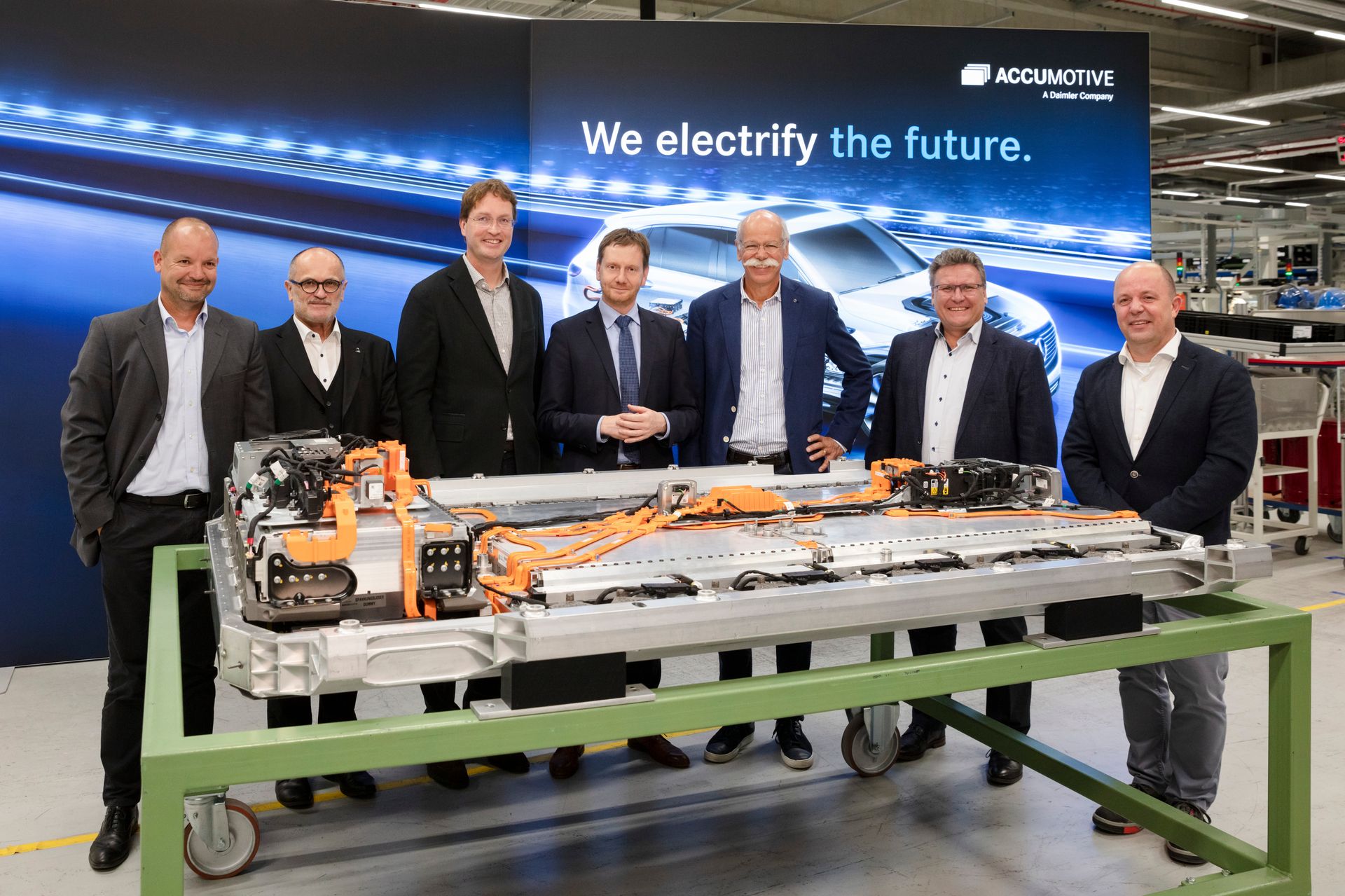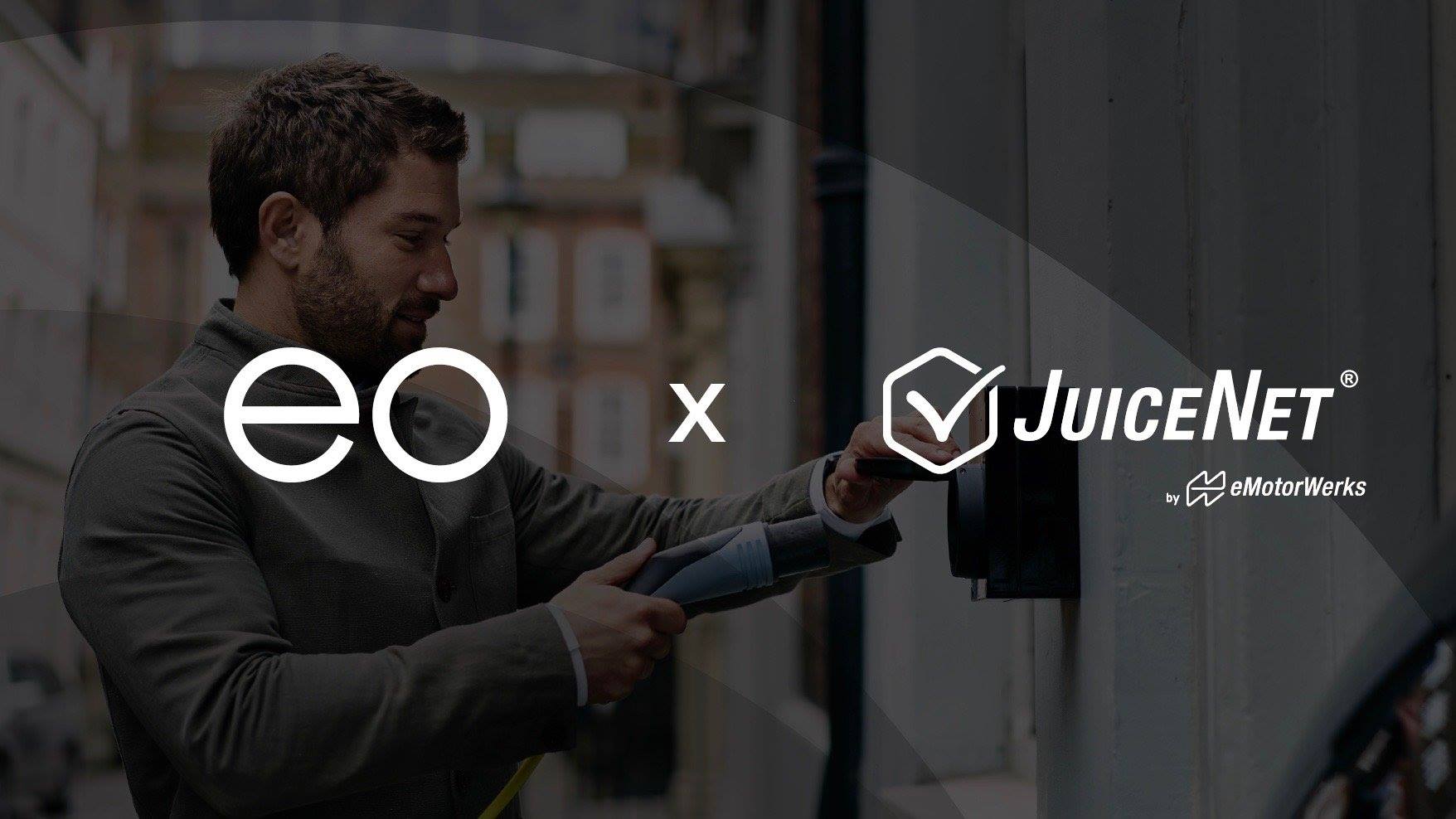Posted 11/15/2018 11: 12: 54CET MADRID, 15 Nov. (EUROPA PRESS) – The car rental company Sixt closed the first nine months of the year with a net attributable profit of 390.17 million euros, representing an increase of 158% compared to the same period of the previous year, according to data published by the company. The… Continue reading Sixt shoots 158% profit until September by selling its stake in DriveNow
Tag: BMW
BMW Group sales increase in October
Munich. The BMW Group has sold more cars in October than ever before in the month, despite the current challenging economic and political situation. The company delivered 200,883 vehicles to customers around the world, an increase of 1.7% on the same month last year. That result brings the company’s year-to-date sales total to 2,035,695, up… Continue reading BMW Group sales increase in October
Volkswagen Claims It Will Build 50 Million Electric Cars Using Its MEB Chassis
Electric Cars
Electric Car Benefits
Electric Car Sales
Solar Energy Rocks
RSS
Advertise
Privacy Policy
Cars
Published on November 13th, 2018 |
by Steve Hanley
Volkswagen Claims It Will Build 50 Million Electric Cars Using Its MEB Chassis
Twitter
Google+
LinkedIn
Pinterest
Facebook
November 13th, 2018 by Steve Hanley
Tesla shares dropped about 5% in value on Monday. Could recent statements by Volkswagen head Herbert Diess have anything to do with that decline? Diess is boasting this week that his company will build 50 million EVs in coming years and that some of them will cost half as much as the cars from Tesla. Indeed, Bloomberg reported last week the company is planning to introduce a sub-compact SUV-style electric vehicle that will retail for $21,000. [Note: “sub-compact SUV” may be an oxymoron.]
Diess tells Reuters that Volkswagen has already taken steps to insure it has enough batteries available to power all of those electric cars. A spokesperson for the company provided some context to Diess’ claim, saying that the 50 million number is a theoretical long-term goal for the carmaker’s MEB electric car platform. He pointed out the company has built more than 50 million vehicles on its current MQB chassis for cars with an internal combustion engine over a period of many years.
A month ago, we reported on Volkswagen’s new MEB electric car chassis. Thomas Ulbricht, head of e-mobility at Volkswagen, told the press in October, “The MEB modular electric drive matrix is probably the most important project in Volkswagen’s history. The platform that Volkswagen is developing is more consistent and innovative than many of the other platforms. By 2022 alone, we anticipate that four Volkswagen Group brands will be ramping up 27 MEB models worldwide, ranging from compact cars to the I.D. BUZZ van.”
Christian Senger, head of e-mobility at Volkswagen, offered more intriguing details. “We have developed a platform designed specifically for electric cars. The I.D. models will not be combustion engine versions that have been converted, they will be designed to be 100 percent, thoroughbred electric vehicles. And they will be engineered to be online upgradeable and update compatible. We’re making optimal use of the possibilities this technology brings.” It will also be compatible with fast charging at up to 125 kW of power.
Will those 50 million electric cars be the compelling competitors Elon Musk has been begging the auto industry to manufacture for years? Probably not, but price is a huge factor for many shoppers. There’s a reason there are far more Corollas and Civics in the world than there are vehicles from Lexus, Audi, and BMW. Volkswagen is flinging down the gauntlet and telling Tesla, “You may be an innovator, but we know how to build lots and lots of cars quickly, efficiently, and profitably. Can you?”
That’s the nub of it. Volkswagen and other traditional car companies know how to crank out products. Tesla is forging ahead with a new factory in China, but how many of you know that Volkswagen is also planning its own Chinese electric car factory and plans to soon have 16 factories around the world dedicated to making electric vehicles. Volkswagen has far more experience creating and managing supply chains and the myriad details that go with manufacturing automobiles than Tesla does. Will Tesla’s penchant for innovation offset Volkswagen’s industrial knowledge base?
In the end, though, the framing may be off. We need all classes to transition to electricity. Just as there’s long been room for both the BMW 3 Series and the VW Golf and the Nissan Versa, there’s evidence to imply that Tesla and Volkswagen can both produce millions of electric vehicles a year for happy customers. Indeed, we need that.
Many of our loyal readers have commented that Volkswagen — like many of its peers — is long on promises and short on action. The first electric cars based on the MEB chassis are not due to begin rolling off assembly lines until 2020, with more coming over the 5 years to follow.
There is an old expression in racing circles: “When the flag drops, the bullshit stops.” The race for dominance in electric car manufacturing is underway, with Tesla already way out in front. Can Volkswagen — or any other legacy car maker — catch up? That’s a question that can’t be answered yet. Rest assured that CleanTechnica will keep you fully informed as the competition heats up.
Support CleanTechnica’s work by becoming a Member, Supporter, or Ambassador.
Or you can buy a cool t-shirt, cup, baby outfit, bag, or hoodie or make a one-time donation on PayPal.
About the Author
Steve Hanley Steve writes about the interface between technology and sustainability from his home in Rhode Island and anywhere else the Singularity may take him. His muse is Charles Kuralt — “I see the road ahead is turning. I wonder what's around the bend?”
You can follow him on Google + and on Twitter.
Back to Top ↑
CleanTechnica Clothing & Cups
Advertisement
Advertise with CleanTechnica to get your company in front of our readers.
Top News On CleanTechnica
Advertisement
Follow @cleantechnica
Join CleanTechnica Today!
EV Charging Guidelines for Cities
Share our free report on EV charging guidelines for cities, “Electric Vehicle Charging Infrastructure: Guidelines For Cities.”
Advertisement
Cleantech Press Releases
New Research Shows That Only Two Large Petroleum Companies Have Meaningful Emission Reduction Targets
Koben Announces EVOLVE EVSF —Grid-Friendly Modular EV Store & Forward System
The New Danish Climate Plan — Together For A Greener Future
The EV Safety Advantage
Read & share our free report on EV safety, “The EV Safety Advantage.”
The State of EV Charging
Our 93-Page EV Driver Report
30 Electric Car Benefits
Blockchain × Cleantech
Our Electric Vehicle Reviews
Tesla News
Correcting the Cleantech Record
38 Anti-Cleantech Myths
Wind & Solar Prices Beat Fossils
Cost of Solar Panels Collapses
© 2018 Sustainable Enterprises Media, Inc.
Electric Cars
Electric Car Benefits
Electric Car Sales
Solar Energy Rocks
RSS
Advertise
Privacy Policy
This site uses cookies: Find out more.Okay, thanks
Lime launches its first car-sharing service in Seattle
Lime It’s true: after a long time focusing on scooters, Lime is ready to delve into four-wheeled transportation. The startup is launching a car-sharing service, LimePod, that will be available in Seattle as of this week. As with scooters, it’ll cost just $1 to unlock a car that you can park wherever you need it… Continue reading Lime launches its first car-sharing service in Seattle
A million printed components in just ten years: BMW Group makes increasing use of 3D printing
Munich. At the BMW Group, the use of 3D-printed components is on the rise. Over the last decade alone, the company produced a million parts by this innovative method, and this year output from the BMW Group Additive Manufacturing Center is expected to reach over 200,000 components — a 42 percent increase on last year’s… Continue reading A million printed components in just ten years: BMW Group makes increasing use of 3D printing
VW, Mercedes-Benz agree to fix diesels in Germany
Mercedes-Benz GLS350d spotted testing near Denver
Volkswagen and Mercedes-Benz have each agreed to spend up to $3,430 to update each of the older diesel cars they sold in Germany with new emissions systems that comply with regulations, Reuters reported Thursday.
The German agreement mirrors one in the U.S. in which Volkswagen paid owners between $5,000 and $10,000 in addition to the cost of repairing or buying back their cars. (The company is still in the process of returning the repaired older diesels back to the market in the U.S.)
A similar U.S. claim against Mercedes has been filed, dismissed, and refiled, but has not yet been adjudicated.
DON'T MISS: Mercedes-Benz gets its own diesel emission cheating questions now
Like the American Volkswagen settlement, the awards are designed to compensate diesel owners for added depreciation of their cars and give them money toward a down payment on a cleaner replacement car.
In Europe, the emissions issue has taken on more urgency because some cities have banned driving older diesel cars in city limits. Those include Frankfurt, Cologne, and Bonn, the latter two of which were required to institute such bans by next April according to a court order that came on Thursday.
READ THIS: Why Did Volkswagen Cheat On Diesel Emissions In Its TDI Cars? (2015)
“Volkswagen, Daimler and BMW will make sure their customers can remain mobile,” German Transport Minister Andreas Scheuer told reporters at a conference in Germany on Thursday.
Scheuer has been pushing German automakers to spend more to retrofit older diesels to keep them on the road. Mercedes-Benz and VW will pay for the cost of retrofitting the cars, although BMW has still refused to do so, Scheuer said.
Last month, German prosecutors fined Volkswagen's luxury brand Audi $927 million after finding documents and emails exchanged between the automaker, its Mercedes-Benz rivals, and Germany auto parts supplier Bosch that the prosecutors allege showed collusion among the automakers to cheat emissions regulations.
Germany Plays Catch Up, Pours $1.2 Billion Into EV Batteries
26 M BY WADE MALONE Currently Japanese, Korean and Chinese firms dominate battery cell production According to Reuters, Germany has earmarked $1 billion euros ($1.2 billion USD) to jump start local production of electric car battery cells. The effort is intended to reduce the reliance of German automakers on Asian battery suppliers. This investment would… Continue reading Germany Plays Catch Up, Pours $1.2 Billion Into EV Batteries
Subsidised plug-in cars driven on fuel
Tens of thousands of plug-in hybrids (PHEVs) bought with generous government grants may be burning as much fuel as combustion-engine cars. Data compiled for the BBC suggests that such vehicles in corporate fleets averaged just 40 miles per gallon (mpg), when they could have done 130. Many drivers may never have unwrapped their charging cables,… Continue reading Subsidised plug-in cars driven on fuel
eMotorWerks & EO Charging Delivers Smart Charging to Europe & UK
6 H BY TOM MOLOUGHNEY Charging should be smart, right? California-based eMotorWerks, a subsidy of Enel, has joined forces with EO Charging, one of the UK’s leading manufacturers of EV charging equipment to deliver “The UK and Europe’s smartest home charger”. The partnership will see the integration of eMotorWerks’ JuiceNet cloud-based platform, which aggregates and manages… Continue reading eMotorWerks & EO Charging Delivers Smart Charging to Europe & UK
The new BMW M8 en route to series production.
Do you need help? Please contact our support team from 9 to 17 CET via support.pressclub@bmwgroup.com. PressClub Global · Article. Fri Nov 09 00:01:00 CET 2018 Press Kit From the race track to the road: the new BMW M8 Coupe (fuel consumption combined: 10.8 – 10.7 l/100 km [26.2 – 26.4 mpg imp]; CO2 emissions… Continue reading The new BMW M8 en route to series production.

